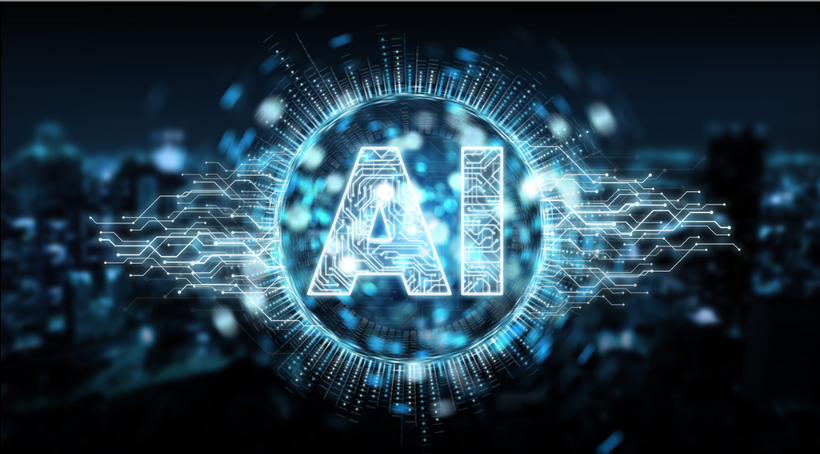Artificial Intelligence, or A.I., is changing the way that dentists work and the patient experience. With new advancements in technology, A.I. is becoming more prevalent in the dental industry. A.I. is not just changing how dentists conduct routine check-ups, but also how accurate diagnoses are and the overall patient experience.
Ten ways that A.I. is transforming the dental industry
1. Predictive Analytics:
A.I. tools can analyze large amounts of data to predict patient outcomes. For example, previous medical records can be analyzed to predict which preventive measures will be most successful at preventing dental problems.
2. Virtual Assistants:
Many dental practices are already using virtual assistants that can book appointments, answer frequently asked questions, and make notes for dentists. These assistants use natural language processing and machine learning to understand and respond to patient inquiries.

3. Dental Imaging and Analysis:
A.I. is particularly adept at analyzing medical images, especially in dentistry. By analyzing dental imaging more accurately, A.I. algorithms can detect even the slightest changes in a patient’s health, helping dentists make more accurate diagnoses and avoid potential problems.
4. Robotic Dentistry:
A.I. is also driving the development of robotics in dentistry. Robots can clean teeth and perform simple procedures such as filling cavities, freeing up dentists to focus on more complex procedures and providing additional options for dental care in areas where access to practitioners is limited.
5. Personalized Patient Care:
A.I. can track and analyze large amounts of patient data to provide customized recommendations and treatment plans tailored specifically to each patient’s individual needs.
6. Better Diagnostics:
Advances in A.I. imaging analysis are making it easier for dentists to make more accurate diagnoses, which can lead to earlier interventions and better outcomes for patients.

7. Treatment Planning:
A.I. can optimize treatment plans for each patient, based on their individual needs, medical history, and other factors. This allows dentists to provide more accurate and effective treatments, tailored specifically to each patient’s needs.
8. Improved Patient Experience:
As more dental practices adopt A.I. tools, patients can expect to have a more seamless and convenient experience when visiting the dentist. Virtual assistants and other A.I. tools can alert dentists when patients arrive and help to streamline the appointment process.
9. Reduced Costs:
A.I.-driven robots and computer assistants can help to reduce labor costs, which could make dental care more affordable for patients. Additionally, early detection and intervention through A.I. can prevent costly dental procedures down the road, helping to reduce overall healthcare costs.
10. Consumer Empowerment:
As A.I. becomes more prevalent in dentistry, patients will have access to more information than ever before.

Patients can use A.I. tools to learn about their dental health, track progress towards goals, and better understand their dental care options.
In some practices worldwide, A.I. tools are already being used to recognize and diagnose cavities in dental X-rays, assess tooth decay, perform dental check-ups and cleaning, and predict patients at risk for dental diseases to help develop customized treatment plans.
What Does the Future Hold?
The Benefits of Adopting AI in Dental Practices
The integration of A.I. into the dental industry is inevitable, and its impact will be immense. As dental practices become more sophisticated and organized, patients can expect to receive better care and more accurate diagnoses. Dentists will benefit from the increased accuracy and efficiency offered by A.I. tools.
However, some concerns exist about the impact of A.I. on the livelihood of dental professionals.

While A.I. will certainly change the way that dentists work, it is unlikely that it will replace them completely. Instead, A.I. will help to streamline dental practices and improve patient outcomes.
Conclusion:
In conclusion, the integration of artificial intelligence (AI) into the dental industry is already having a significant impact and is expected to revolutionize the way dentistry is practiced. AI tools are providing dentists with more accurate diagnoses, treatment recommendations, and personalized patient care.
Patients, in turn, can expect to receive a more seamless and convenient experience when visiting the dentist. While there are concerns about the impact of AI on the livelihood of dental professionals, it is unlikely that it will replace them completely. Instead, AI will help to streamline dental practices and improve patient outcomes.
Dental practices that adopt AI technology will be better positioned to provide the best care to their patients, while those who fail to adapt may find themselves falling behind.
 Add Row
Add Row  Add
Add 




Write A Comment